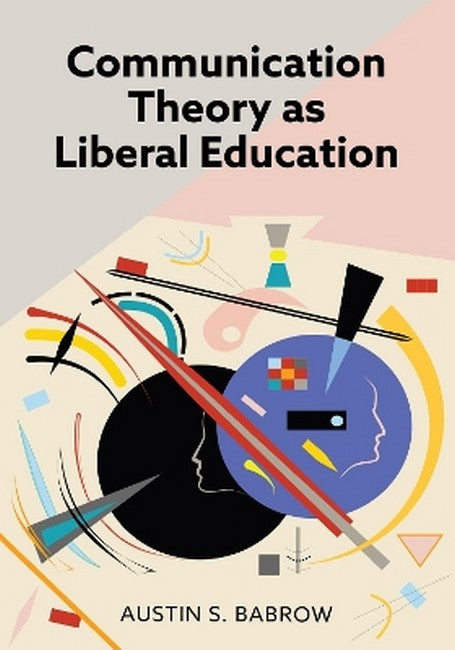Austin S. Babrow (Ph.D., University of Illinois at Urbana-Champaign) is a professor emeritus in the School of Communication Studies at Ohio University. His teaching and research focus on the intersection of communication, uncertainty, and values, particularly the social construction of uncertainty and the profound values associated with environmental and health risks.
Request Academic Copy
Please copy the ISBN for submitting review copy form
Description
"The book's approach seems innovative and engaging, departing from traditional Communication Theory texts that overwhelm students with abstract concepts and jargon. Instead, the book focuses on a few exemplary theories, explaining each in detail and encouraging students to understand them as unique, coherent ways of thinking about communication. The book also aims to connect theoretical concepts to real-world challenges and encourage critical thinking. As for the content coverage, the book surveys a wide range of communication theories, including non-Western perspectives, which is a noteworthy and valuable feature. Finally, the book's organization seems well-structured, with questions at the end of each chapter prompting students to apply the concepts they learned. Overall, the book's approach is effective in teaching Communication Theory as a liberal education, encouraging students to appreciate the richness and significance of human communication." Margaret M. Quinlan, University of North Carolina at Charlotte "The author does a great job making the content reader friendly. [...] [I most enjoyed] the inclusion of different ways of thinking - taps into different parts of the brain, learning modalities, subject areas, and demographics; the personal writing style and inclusion of personal examples - it makes the content feel genuine and helps to tie together the ordinary and the academic; [and] the introduction of discussion questions is well done as it brings back into focus what's been read and directs the thoughts of readers as to what portion of the chapter they should be reflecting on as they answer the questions. [...] [Chapter 3, "Rhetorical Theory in Aristotle's Rhetoric] is a valuable contribution to the study of communication theory. When it comes to the study of rhetoric, much of this content has fallen by the wayside. The author provides a fresh contribution to the historical nature of rhetoric and the value of it in current day ruminations. [...] The author does an excellent job of tying content together throughout the entire text - pulling in and integrating ideas throughout and then returning to them within each chapter that follows." Terilyn J. Goins, Regent University "I'm a big fan of rhetoric. Further, I like that rhetoric is an entire chapter [Chapter 2] in a comm theory book. Many of the books I have used in the past use more quantitative theories and few if any treatment of the rhetorical/qualitative side. I applaud the fact that this is a well developed chapter on rhetoric and early in the book, which means professors will more likely incorporate it in the class." Michael H. Eaves, Valdosta State University "I was unfamiliar with these theories [Chapter 11, Beyond Western Theorizing: Views From Africa and Asia], so I think they're good choices to expand the perspective of thinking about communication. They both come from communication scholars, so I like the focus [...] as opposed to just finding a more comprehensive theory of non-Western philosophy and highlight the communicative aspects." Ted Matula, University of San Francisco

